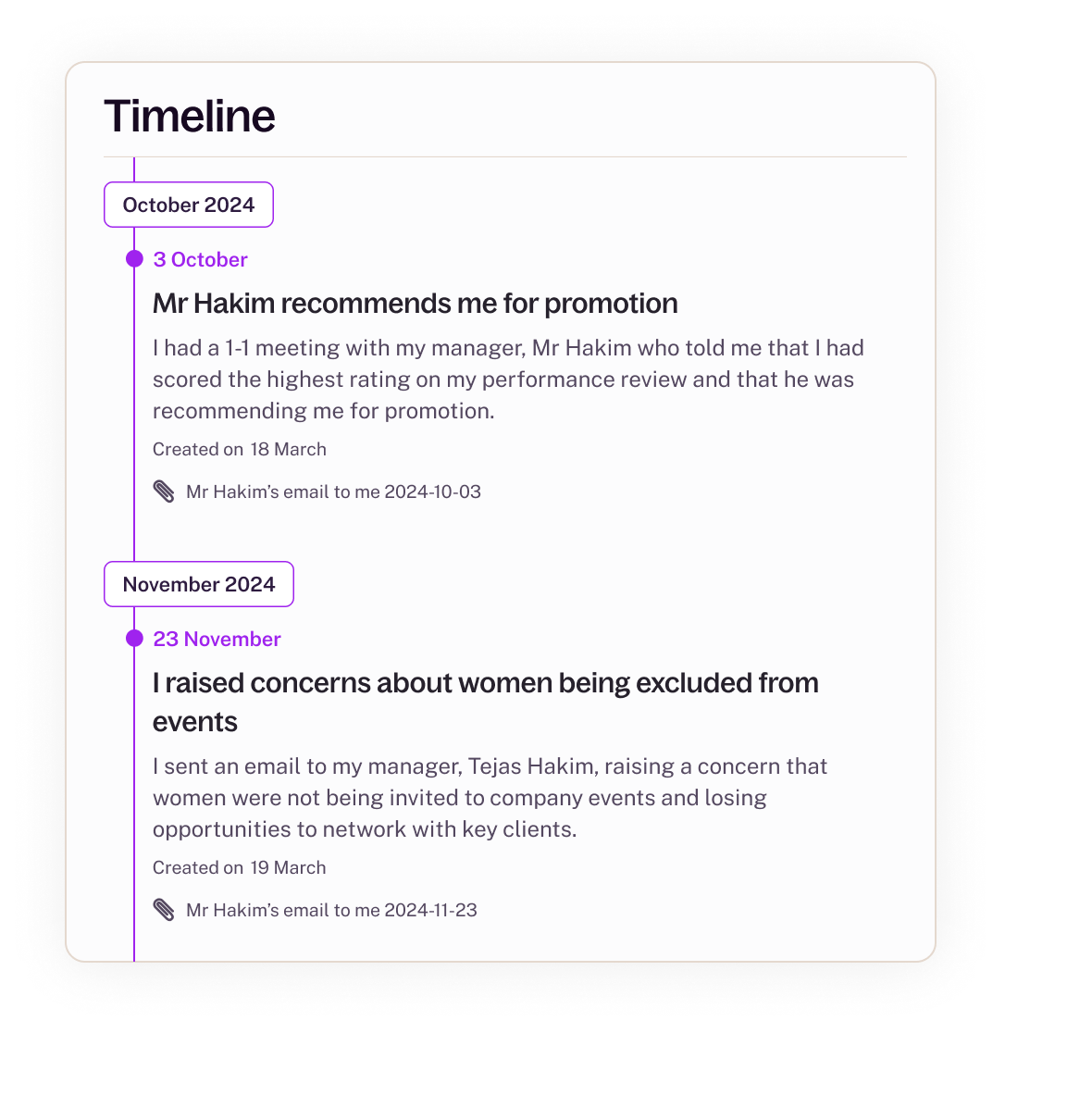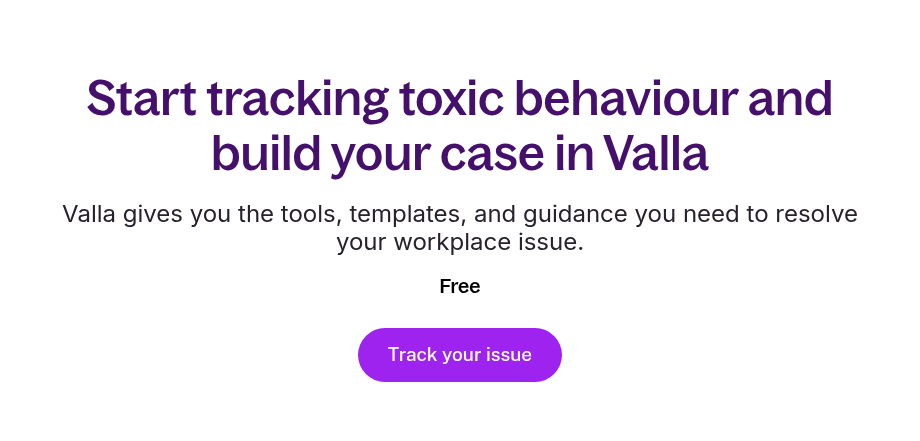Dealing with toxic behaviour at work
If something at work feels wrong, it probably is.
Toxic workplaces don't just make you feel bad - they can seriously damage your mental health, career prospects, and personal life.
Millions of UK workers experience toxic workplace behaviour every year - from subtle gaslighting that makes you question your own reality, to outright bullying that leaves you dreading each workday.
Your feelings are valid.
If something feels wrong at work, it probably is. And more importantly, you don't have to suffer in silence.

Protect yourself from gaslighting, bullying and other toxic behaviour
When something bad happens at work, one of the first things you can do to protect yourself is keep notes. Making detailed notes immediately after the event happened can be important, not only for your peace of mind but if you later take your employer to tribunal.
- The date that you wrote the note
- The date that the event happened
- Who was there and where you were
- Your memory of what happened and what was said
When is toxic behaviour illegal?
UK employment law provides strong protections against toxic workplace behaviour.
Generally, toxic behaviour is illegal in UK workplaces for three reasons:
- If it’s discriminatory
- If it’s a reaction to you using a “protected” right
- If it represents a fundamental breach of contract
Real Tribunal example of toxic behaviour that is illegal
In 2021, an employee who was blind in one eye was mocked by a colleague. The colleague squinted and made funny eyes with reference to her, in order to get others at work to laugh at her.
The Tribunal found that this bullying behaviour was harassment under the Equality Act because of her disability, and awarded her £11,218.20. She also succeeded in claims for both wrongful and unfair dismissal.
How to deal with toxic behaviour at work
There are a few ways you can address toxic behaviour at work, the right approach depends on your specific situation but here are key steps you can take:
Step 1: Start keeping notes
It's important to write down the "who, what, where, when" of any encounter while it's fresh in your memory - it can be essential for your case later on.
Step 2: Try resolving the issue informally
It can be helpful speak to your manager or someone else at work to try and resolve the issue informally
Step 3: Raise a formal grievance
If you don't feel you are getting anywhere through informal channels, you can raise a formal grievance against your employer by writing a letter
What People Say About Using Valla
"At every stage, Valla provided clear, practical tools and advice that made an overwhelming process feel more manageable."
- Maya Bilton
"Their support was not only professional but also deeply human, which made a real difference during such a stressful and emotional time. I honestly don't know how I would have managed without them."
- Mandy Madeira
"I received amazing support and advice leading up to my preliminary hearing. Could not have done it without them and will definitely use them again."
- Nicola
Take action on toxic behaviour at work
Don't let toxic behaviour damage your career, confidence, or health. Get the expert guidance you need to address the issue properly and protect your rights.
Free timeline tool to easily document what happened - and use the notes later for evidence
Find out if the toxic behaviour is illegal
Get expert guidance from experienced employment lawyers
Support through the entire process
Start tracking toxic behaviour and build your case in Valla.
If something doesn't feel right at work, it probably isn't
Toxic behaviour at work is not something you have to put up with. Whether you are just starting to gather evidence or you are ready to submit a Tribunal claim, Valla gives you the tools and support to act with confidence.
Use our free platform to document issues, raise a grievance, or get your legal case reviewed by an expert.
Free




